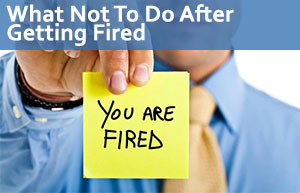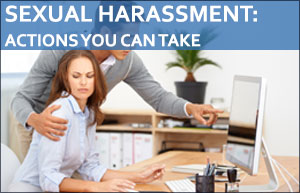SPEAK WITH A LAWYER TODAY
Disability Discrimination Lawyer
California Disability Discrimination Lawyer
 When making business decisions, employers should focus only on an employee’s or applicant’s skills and ability to perform job duties. Unfortunately, some employers allow bias to cloud their judgment, making decisions based on factors unrelated to job performance, such as race, gender, national origin, religion, sexual orientation, genetic information, or disabilities. Regardless of whether these biases are intentional or unintentional, they can lead to unfair treatment that negatively impacts employees.
When making business decisions, employers should focus only on an employee’s or applicant’s skills and ability to perform job duties. Unfortunately, some employers allow bias to cloud their judgment, making decisions based on factors unrelated to job performance, such as race, gender, national origin, religion, sexual orientation, genetic information, or disabilities. Regardless of whether these biases are intentional or unintentional, they can lead to unfair treatment that negatively impacts employees.
It is unlawful for an employer to discriminate against workers based on personal characteristics that are beyond their control.
Discrimination occurs when an employer or coworker treats an employee unfairly based on characteristics such as disability. This can impact hiring, promotions, terminations, benefits, and other employment conditions.
The Americans with Disabilities Act (ADA) is a federal law that protects workers from discrimination based on disability. It applies to private companies with at least 15 employees, though smaller businesses may be covered under state laws. In California, the Fair Employment & Housing Department (DFEH) enforces similar protections. The ADA defines disability broadly, ensuring that employees are not treated unfairly because of physical or mental impairments.
If you believe you have been subjected to discrimination due to a disability—whether through unfair treatment or termination—you may be eligible to file a legal claim. Our legal team at the California Labor Law Employment Attorneys Group, based in Los Angeles, assists employees who have experienced workplace discrimination. Our attorneys regularly answer common questions, such as:
- How do I sue for disability discrimination?
- Can my employer fire me because of a disability?
- Is it legal for a company to base hiring decisions on disability?
- Can my supervisor discriminate against me for having a disability?
- Is terminating an employee due to disability considered wrongful termination?
- What legal options exist if I was denied a job because of my disability?
- How can a disability lawyer in Los Angeles assist me?
- Can a disability discrimination attorney help me recover damages?
If you need a disability discrimination lawyer in Los Angeles, here’s what you should know about your rights and how to take legal action.
How Does the ADA Define a Disability?

Additionally, the ADA protects employees who have a history of disability, such as past heart disease. Employers also cannot assume a worker has a disability and make employment decisions based on that assumption. For example, if an employer wrongly assumes an employee’s limp affects their ability to perform a job that involves walking, that assumption constitutes discrimination.
If an employee can perform the essential job duties—whether with or without reasonable accommodations—an employer cannot legally fire them based on their disability.
What Is an Essential Job Function?
Essential job functions are the core duties of a position. These are the primary reasons the job exists. If an employee can perform these key functions, their employer cannot lawfully terminate or penalize them due to a disability. If the disability creates minor challenges, the employer is required to provide reasonable accommodations, as long as doing so does not cause undue hardship.
What Is Reasonable Accommodation?
The ADA requires employers to make reasonable accommodations for employees with disabilities. This means making necessary adjustments that allow disabled employees to perform their jobs. For example, if an employee loses the ability to walk, the employer may need to install a ramp, adjust desk heights, or modify restroom facilities.
Employees must request accommodations if needed, but employers are not obligated to fulfill specific requests. For instance, if an employee asks for an advanced, high-tech ramp, the employer only needs to provide a safe and functional ramp. However, if the cost of accommodations creates an undue burden—especially for small businesses with limited resources—employers may be exempt from these requirements.
Can I Take Time Off Work for My Disability?
Employees may need time off for medical treatment or recovery, and they are legally entitled to do so without fear of losing their jobs. Federal and state laws provide certain protections for workers who need medical leave.
The Family and Medical Leave Act (FMLA) allows employees to take up to 12 weeks of unpaid leave for medical reasons. This law applies to businesses with at least 50 employees, and workers must meet specific eligibility criteria. California also has its own version of this law, the California Family Rights Act, which provides similar protections.
How to File a Disability Discrimination Lawsuit
Before you can file a lawsuit against your employer, you must first file a complaint with a government employment agency. You have the option to file with a federal or state agency.
The federal agency handling workplace discrimination claims is the Equal Employment Opportunity Commission (EEOC). The California state agency responsible for enforcing disability discrimination laws is the Department of Fair Employment and Housing (DFEH). Both agencies work together through a process called “dual filing,” which ensures that your complaint is recognized at both state and federal levels.
The deadline to file with the EEOC is 180 days from the date of the last discriminatory act. However, California law extends this deadline to 300 days under the Fair Employment and Housing Act (FEHA). After filing, an investigation is conducted, and if the agency determines you have a case, you can request a “right-to-sue” letter. This document allows you to take legal action, but you must file your lawsuit within 90 days of receiving it.
You can submit your claim in person at an EEOC or DFEH office or send it by mail. If filing by mail, be sure to include:
- Your name, address, and phone number
- Your employer’s name, address, and phone number
- A brief description of the discriminatory events
- The dates the incidents occurred
- The number of employees at your workplace
- Your signature
Free Consultation and No Upfront Fees
If you believe you have been subjected to workplace disability discrimination, you may be entitled to file a legal claim. The California Labor Law Employment Attorneys Group in Los Angeles is here to help you seek the compensation you deserve.
We offer free consultations, allowing you to speak with an attorney at no cost. Additionally, we operate on a zero-fee guarantee, meaning you pay nothing unless we win your case.
Client Testimonial
“The team at California Labor Law was professional and supportive. They checked in regularly and went above and beyond to assist me. I highly recommend their services.”
– Mary Withers
Client Review
“The people at California Labor Law where professional and and caring. They helped me in every way possible. They calling me periodically to see if there is any other need. Susanna and Desirae personally went over and above the services I ask for. Thank You! If you need a law firm I recommend California Labor Law and Employment Attorneys Group.”
– Mary Withers

100% FREE CASE CONSULTATION

OUR Guarantee
Pay NO FEES until we win your Employment case.

Client Review
California Labor Law Employment Attorneys Group
5 out of 5
This can be an ugly world and it is nice knowing lawyers such as Daniel to help people right a wrong when they have suffered at the hands of their employer. Daniel is one of the good guys out there and I strongly recommend his skills as an employment lawyer.
– Hoagland Stubbs